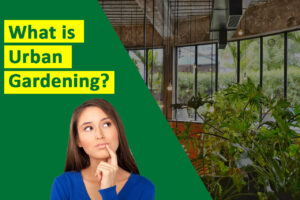Beautiful Plants For Your Interior
Unlocking the Secret to Sustainable Living: 9 Surprising Benefits of Urban Gardening
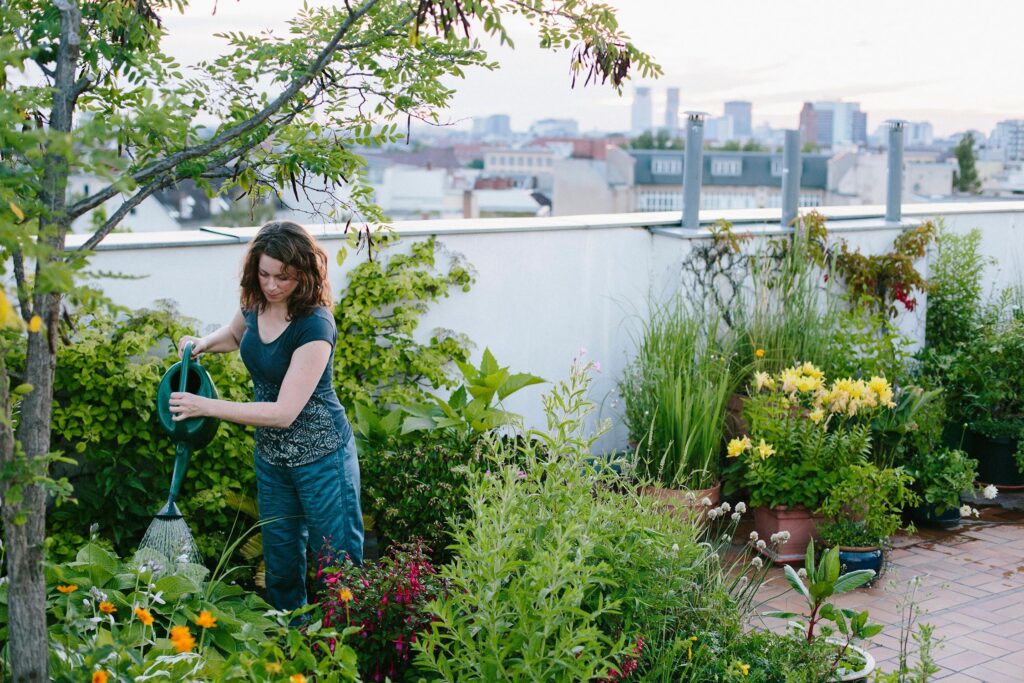
Do you want to know more about the benefits of urban gardening and how it may support sustainable living? When it comes to sustainable living, few practices offer the multitude of benefits that urban gardening does. Urban gardening, also known as urban horticulture or urban farming, has gained immense popularity in recent years as a powerful tool for transforming urban spaces and promoting a more sustainable lifestyle.
Join us as we will explore the surprising benefits that urban gardening brings to individuals, communities, and the environment. From improved air quality to increased access to fresh produce, urban gardening has the potential to revolutionize the way we live and interact with our surroundings.
Top 9 Benefits of Urban Gardening
Urban gardening, also known as urban agriculture or urban farming, refers to the practice of cultivating plants and growing food in urban environments, as per the U.S. Department of Agriculture. This activity has gained popularity in recent years due to its numerous benefits. Here are some of the advantages of urban gardening:
1. Improved Air Quality
Did you know that urban areas often have higher pollution levels compared to rural regions? Urban gardening presents a fantastic opportunity to combat this issue. Plants naturally absorb carbon dioxide and release oxygen through photosynthesis, making them effective air purifiers. By cultivating a garden in your urban space, you contribute to cleaner air, reducing pollution and its harmful effects on both human health and the environment.
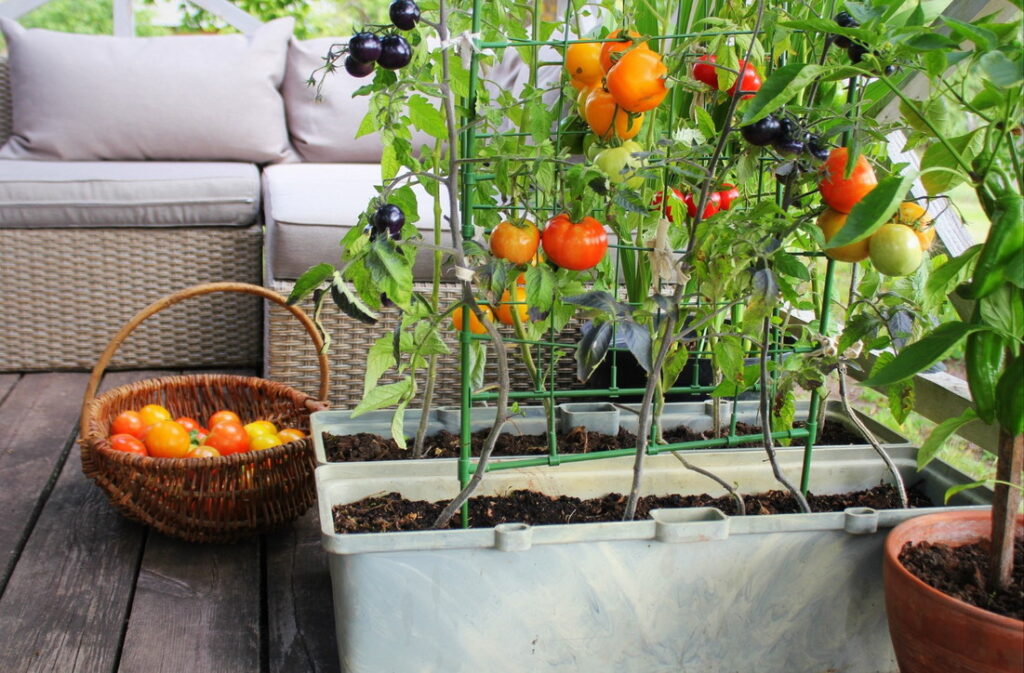
2. Increased Access to Fresh Produce
In many urban areas, access to fresh and organic produce can be limited, leading to a reliance on processed and packaged foods. Urban gardening allows you to take control of your food sources by growing your fruits, vegetables, and herbs. Not only does this provide you with a convenient and cost-effective way to obtain fresh produce, but it also promotes a healthier lifestyle and reduces your carbon footprint by eliminating the need for long transportation distances.
3. Promotes Biodiversity
Urban gardening is not only about growing plants for our benefit; it also plays a vital role in preserving biodiversity and providing a habitat for wildlife. By incorporating native plants into your urban garden, you attract pollinators like bees and butterflies, which are crucial for plant reproduction. Additionally, birds and small animals are drawn to these green spaces, creating a mini-ecosystem within the city and contributing to the overall health of the environment.
4. Enhances Food Security
In a rapidly changing world, ensuring food security is of utmost importance. Urban gardening empowers individuals and communities to become more self-reliant when it comes to food production. By cultivating your crops, you become less dependent on external food sources and are better prepared to face any disruptions in the food supply chain. Urban gardens also provide a valuable learning opportunity for children and promote a culture of self-sufficiency and resilience.
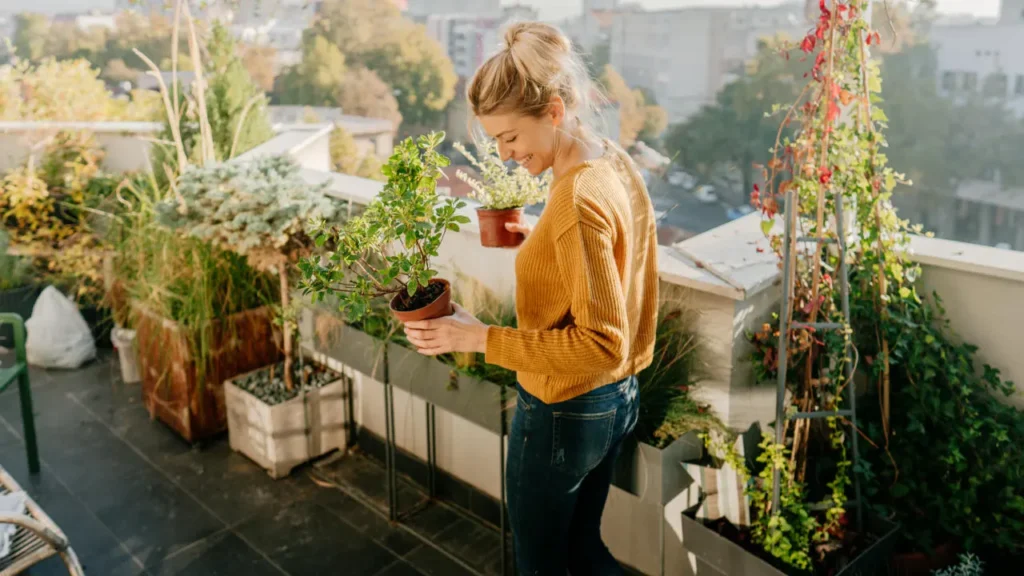
5. Stress Relief
The hustle and bustle of city life can often leave us feeling stressed and overwhelmed. Urban gardening provides an escape from the concrete jungle, offering a serene and therapeutic environment to unwind and connect with nature. Engaging in gardening activities has been proven to reduce stress, lower blood pressure, and improve overall mental well-being. Plus, the satisfaction of nurturing plants and witnessing their growth can bring a sense of accomplishment and joy.
6. Environmental Conservation
As we face the challenges of climate change and environmental degradation, urban gardening emerges as a powerful tool for conservation and mitigation. By integrating green spaces into our cities, we can combat the urban heat island effect, reduce energy consumption, and regulate local climate conditions. Urban gardens also contribute to soil conservation, prevent erosion, and promote water infiltration, ultimately protecting the natural resources that sustain our planet.
7. Educational opportunities
Urban gardening serves as a valuable educational tool, particularly for children and youth. It offers hands-on learning experiences about plant biology, food systems, environmental stewardship, and sustainable practices. Schools and community organizations can integrate gardening into their curricula, teaching important skills and knowledge related to food production, nutrition, and environmental awareness.
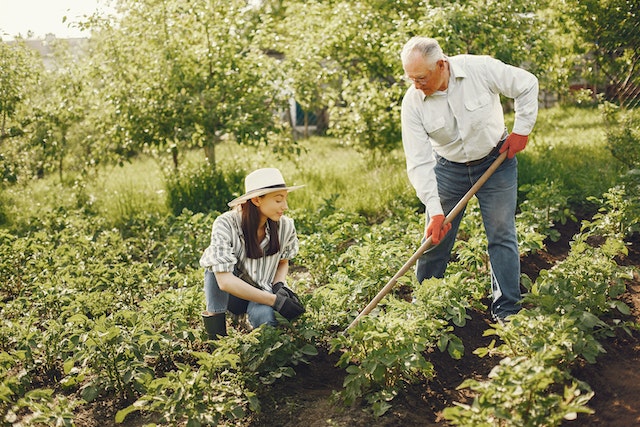
8. Community Engagement
One of the most beautiful aspects of urban gardening is its ability to bring people together. Community gardens and shared green spaces create opportunities for neighbors to interact, collaborate, and build social connections. Whether it’s through joint gardening efforts, educational workshops, or communal events, urban gardening fosters a sense of community pride and cohesion. These shared spaces become a hub for exchanging knowledge, stories, and experiences, making cities more vibrant and inclusive.
9. Economic opportunities
Urban gardening can create economic opportunities by supporting local entrepreneurship. Small-scale farmers and gardeners can sell their surplus produce at farmers’ markets or directly to local restaurants and shops, generating income and stimulating the local economy. Additionally, urban gardening initiatives can provide job training and employment opportunities in the landscaping, horticulture, and urban agriculture sectors.
People also ask
-
Can I start an urban garden if I live in an apartment?
Absolutely! You don’t need a vast backyard to embrace urban gardening. Many apartment dwellers successfully cultivate plants on balconies, windowsills, and even vertical gardens. Container gardening and hydroponic systems are excellent options for limited spaces, allowing you to grow a variety of plants indoors or outdoors.
-
Is urban gardening suitable for beginners?
Urban gardening is accessible to gardeners of all skill levels, including beginners. Start small with easy-to-grow plants like herbs or lettuce, and gradually expand your garden as you gain confidence and experience. Numerous online resources and local gardening communities can provide guidance and support along the way.
-
How can I ensure my urban garden is environmentally friendly?
To make your urban garden more environmentally friendly, opt for organic and sustainable gardening practices. Use compost or natural fertilizers, avoid chemical pesticides, and choose native plants that are well-suited to your region’s climate. Conserving water through techniques like drip irrigation and rainwater harvesting is also crucial.
-
Can urban gardening save me money on groceries?
Yes, urban gardening can lead to significant savings on groceries, especially if you grow high-value crops like tomatoes, peppers, or berries. Additionally, growing your own food reduces the need for transportation, packaging, and processing, making it a cost-effective and sustainable choice in the long run.
-
Are there any health risks associated with urban gardening?
While urban gardening is generally safe, it’s essential to take precautions. Be aware of the quality of the soil you use and ensure it’s free from contaminants. If you live in a highly polluted area, consider using raised beds with clean soil or growing plants in containers. Regular handwashing and wearing gloves when handling soil or using fertilizers further reduce any potential risks.
-
How can I get involved in a community garden?
Joining a community garden is an excellent way to engage with like-minded individuals and contribute to your local community. Search online for community gardens near your location or inquire at local horticultural societies, parks departments, or environmental organizations. They can provide information on how to become a member or start your own community garden.
-
Are there any health benefits of urban gardening?
Urban gardening offers numerous health benefits, including access to fresh and nutritious food, increased physical activity, stress reduction, improved mental well-being, environmental benefits such as air quality improvement, community engagement, fostering social connections, and skill development.
-
What are the benefits of urban gardening in a community?
Urban gardening in the community offers benefits such as improved food security, social cohesion, neighborhood beautification, education, environmental sustainability, and economic opportunities.
Wrap-up On Benefits Of Urban Gardening
In conclusion, the benefits of urban gardening are undeniable. By engaging in urban gardening, individuals and communities can enhance food security, promote environmental sustainability, improve health and well-being, foster community engagement, and empower individuals through education. The importance of urban gardening extends far beyond the act of growing plants. It contributes to the creation of sustainable and resilient cities, where people can live harmoniously with nature, nurture their communities, and lead healthier lives. Embracing urban gardening is a powerful step towards unlocking the secret to sustainable living and cultivating a greener future for generations to come.


